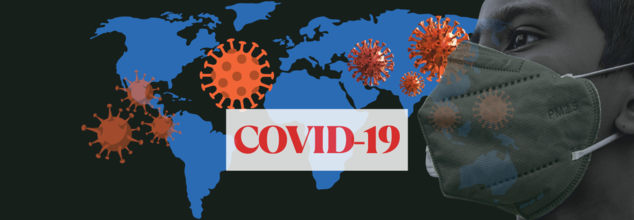- Health Conditions A-Z
- Health & Wellness
- Nutrition
- Fitness
- Health News
- Ayurveda
- Videos
- Medicine A-Z
- Parenting
- Web Stories
Our Blood And Urine Can Reveal How Much Ultraprocessed Foods We Consume: Study

(Credit-Canva)
Even though many studies have been done to determine what foods help our health and which ones could exacerbate or increase the likelihood of certain conditions like cancer, none of them could conclude that for certain. There is always a sense of uncertainty, especially when it comes to food-related research. However, new research has found molecules that can help researchers accurately track this intake, helping them give results with surety.
Researchers have discovered that certain molecules in our blood and urine can show how much energy a person gets from ultraprocessed foods (UPF). This is a huge step because these foods, which are everywhere, make up almost 60% of what Americans eat. Understanding their impact is super important for our health.
Biological Footprints of UPF Consumption
In a first of its kind study, published in the PLOS Medicine journal, researchers have pinpointed biological markers, molecules present in our blood and urine, that can reveal how much unhealthy and processed foods we are consuming, whether it is high or low levels of consumption.
One thing you must remember is that these foods are not made at home or with fresh products, these are products that come from factories. These foods range from sugary cereals and sodas to chips and frozen pizzas. These products are industrially produced with ingredients like additives, colors, and preservatives not typically found in home kitchens.
Dietary Research And Its Shortcomings
It is difficult to track how certain foods affect us by tracking what we eat. Usually, researchers ask people to remember everything they ate over a certain period. However, these verbal accounts cannot be used for certain, as there will be some disparities regarding what you eat and what you tell. People often forget things or don't report them accurately. This makes it hard to get reliable information.
To overcome this, researchers came up with a new research model that can track food intake through the molecules we carry in our blood and urine.
Developing Biomarker Scores
To create this new, more objective way of tracking food intake, researchers looked at information from a past study involving over 1,000 older adults. A big group of them (more than 700) had given blood and urine samples, and they also kept detailed food diaries for a year.
The scientists then found hundreds of metabolites. These are like little leftover bits that our bodies produce when we digest food and perform other daily functions. They discovered that many of these metabolites were linked to how much energy a person got from ultraprocessed foods. From these, they put together a "score" using 28 markers found in blood and up to 33 markers found in urine. These scores were really good at predicting how much ultraprocessed food someone was eating in their regular diet.
The researchers explained that they found a "signature" – a clear pattern of these markers – that showed a diet high in ultraprocessed foods, not just specific food items. Interestingly, a few of these markers, like certain amino acids (building blocks of protein) and a type of sugar, showed up very consistently. One marker even suggested a possible connection between a diet high in ultraprocessed foods and developing type 2 diabetes.
How Did They Confirm Their Findings?
To make sure their new scoring system actually worked, the team tested it on data from another study that was very carefully controlled. In that study, 20 adults actually lived at an NIH center for a month. For two weeks, they ate only ultraprocessed foods, and for the other two weeks, they ate only unprocessed foods. The researchers made sure both diets had the same amounts of calories, sugar, fat, fiber, and other nutrients, and people could eat as much as they wanted.
The researchers found that their new metabolite scores could accurately tell when a person was eating a lot of ultraprocessed foods and when they weren't. This showed that the markers were reliable for individual people.
Experts believe that these marker "signatures" can help us understand how ultraprocessed foods harm our bodies and even if different types of ultraprocessed foods or processing methods have different effects. The future aspects of this research are huge as many scientists believe they could use it to track how eating ultraprocessed foods affects the risk of getting cancer.
Is It Safe When You Skip Your Period While On Birth Control?

Credits: Canva
Periods can be a mild inconvenience for some and for others, they're a cause of disabling pain, mood swings, or health complications. As medical science continues to advance, one question keeps raising eyebrows and eyebrows: Is it actually safe to miss your period on the pill? The short answer? Yes, and in many cases, it can even be beneficial but before tossing aside your placebo pills, it’s important to understand what’s happening to your body, the science behind menstrual suppression, and the myths versus facts surrounding it.
For many people, the motivation to skip a period is rooted in convenience. Maybe you’re planning a beach vacation, attending a wedding, or simply want to avoid the monthly disruption that comes with cramps and mood swings.
Beyond lifestyle, others find relief from more severe health conditions. Painful cramps, mood swings, endometriosis, anemia, and even fibroids are all legitimate reasons for wanting to control or prevent menstruation.
People with chronic pelvic pain, hormonal issues, or neurological conditions like menstrual migraines can also benefit from less frequent menstruation.
What Happens When You Skip a Period on Birth Control?
The menstrual cycle induced while on the pill is not actually a period it's a withdrawal bleed from the placebo (hormone-free) week. If you avoid that week and stick with active pills or use other continuous birth control like the ring or implant without interruption, you stop that withdrawal bleed.
"There is no medical need for the body to bleed each month with the use of hormonal birth control. It's a pattern created decades ago to imitate the natural cycle not because the body requires it.
By keeping the hormones at a steady level through continuous use, users can actually abolish regular bleeding altogether.
Even with the evidence for menstrual suppression, falsehoods prevail in cyberspace. Social media influencers such as those on TikTok advise against "suppressing natural processes" or assert that long-term hormonal birth control causes infertility.
Medical practitioners warn against such a tide of online misinformation. There is no scientific evidence that avoiding periods through birth control negatively impacts fertility. These stories usually come without context, are not peer-reviewed, and give rise to unnecessary fear.
Depending on anecdotal guidance rather than medical experience can be hazardous particularly when it impacts reproductive choices.
What Are The Risks Involved?
Though missing your period with birth control is safe medically for most, it's not completely side effect-free. One typical problem is breakthrough spotting or bleeding, particularly if you miss several cycles consecutively.
It's also worth mentioning that since menstruation is a visual indicator of pregnancy detection, becoming period-free could make it more difficult to detect an unplanned pregnancy early on. That is why correct and consistent use of your contraceptive is paramount.
In exceptional circumstances, long-term use of hormonal birth control can marginally boost the risk of blood clots or cardiovascular problems, particularly in smokers or those with existing conditions but missing your period doesn't add to those risks above the baseline created by the birth control itself.
If you're thinking about missing your period consistently, talk to a health care provider. You'll figure out the best option together — whether that is extended-cycle pills, hormonal IUDs, rings, patches, or implants.
Your health care provider will also assess if you're a good fit based on your history, lifestyle, and general wellness objectives. Most importantly, they'll walk you through what to anticipate and how to watch for any unusual symptoms.
Skipping your period using hormonal birth control is not only safe, it can be incredibly beneficial for many people. Whether you’re looking to gain more control over your schedule, reduce painful symptoms, or manage a chronic health issue, menstrual suppression is a validated, doctor-approved choice.
Nevertheless, it is a personal choice that can be made with a doctor's counsel. With proper information and assistance, you can gain control over your cycle according to your lifestyle and health.
COVID-19 Returns? Is The New Variant Worse And How Long Will You Be Sick With It?

With the world continuing to inch away from the height of the COVID-19 pandemic, a fresh wave of infections is again causing concern—this time fueled by new subvariants of the Omicron variant. Southeast Asia, more so urban areas in Singapore, Hong Kong, and sections of India, is experiencing a rise in COVID-19 infections propelled by the JN.1 variant and its sub-lineages LF.7 and NB.1.8 but is it a new pandemic in the making?
How severe is the new variant? And what should you do if you become infected? All three of these countries have officially reported an increased surge in infections. In India, while numbers are still low by comparison, Kerala is the leader in new cases (69 as of mid-May), followed by Maharashtra, Tamil Nadu, Karnataka, and Delhi. Experts explain the acceleration of cases not due to increased virulence but due to behaviors such as erosion of immunity and fatigue around prevention strategies.
Most recent data from Southeast Asian health ministries reveal a sudden surge in cases of Covid-19 in Hong Kong, Singapore, China, and Thailand. In Singapore, the Ministry of Health's rare update—its first since nearly a year ago—recorded a 28% jump in weekly cases to 14,200 for the week to May 3. The daily hospital admissions have also increased about 30%.
Meanwhile, Hong Kong is also experiencing a sharp peak. The Centre for Health Protection indicated the positivity rate of respiratory samples rose from 1.7% mid-March to 11.4%, greater than the August 2024 peak. There have been 30 fatalities in 81 severe adult cases in the past month, the majority involving individuals over 65 and with existing medical conditions.
The trend is concerning and part of a wider pattern sweeping across the region. Thailand experienced fresh clusters of infections following its heavily publicized Songkran holiday in April, and mainland China's test positivity rates have risen by over double since late March, approaching that of its summer 2024 wave.
The new wave of COVID has brought the JN.1 variant of Omicron into the spotlight, which is responsible for the latest surge in numbers. In India alone, there are 257 active cases, and the discussion about safety, new policies and health issues has started.
The present surge in COVID-19 cases is being majorly spurred by new Omicron subvariants, most notably JN.1. That variant and its offspring LF.7 and NB.1.8, are being found highly contagious. "These variants are too easy to spread and disrupt the body's immunity and cause another infection," says Dr. Harish Bhatia, Senior Chest Specialist & Director & Head Dept. Of Respiratory Medicine
The World Health Organization (WHO) has classified JN.1 as a "variant of interest," subsequently promoting it to a "variant of concern." Nevertheless, world health authorities continue to assert that the public health risk is low at this point.
Is JN.1 More Dangerous Than Previous Variants?
The JN.1 strain, though better at spreading, has not indicated signs of making healthy people sicker. "The good part," Dr. Bhatia explains, "is that this variant seems to produce milder disease in healthy individuals."
But there is an exception. The old, the immunocompromised, or those with pre-existing conditions such as diabetes or heart disease are still at increased risk of developing complications. For them, even a "mild" strain could be a potentially deadly affair. It's a warning that COVID-19 is not yet "just another cold."
Symptoms Of Covid-19 JN.1 Variant To Watch For
The symptoms of JN.1 and its sub-lineages are very similar to those of previous Omicron variants, affecting the upper respiratory system. Typical symptoms are:
- High temperature
- Runny nose
- Sore throat
- Headaches
- Body aches
- Exhaustion or tiredness
- Mild gastrointestinal distress (in some individuals)
The majority of individuals recover with rest at home, but the duration and intensity depend on one's immune response and health condition.
Covid-19 JN.1: How Long Will You Be Sick?
Experts say that the average recovery period for a light COVID-19 disease caused by the JN.1 variant is 5 to 7 days. Yet, some of the symptoms—especially fatigue and cough—can persist for 2 to 3 weeks.
Dr. Bhatia suggests that in case of persistence of the symptoms beyond 10 days or deterioration—particularly high-grade fever or respiratory difficulty—medical help must not be delayed. "It is important to listen to your body and not overlook warning signs," he adds.
Covid-19 JN.1: What to Do If You Get Infected?
In case you test positive for COVID-19, here is what public health officials suggest:
Isolate for a minimum of 5 days, or until your symptoms resolve. For extra caution, isolate up to 10 days.
- Drink plenty of fluids and get plenty of rest. Symptomatic treatment with paracetamol for fever and muscle pain is often adequate.
- Keep track of your symptoms, particularly if you fall into a high-risk group.
- Get professional assistance if you have difficulty breathing, chest discomfort, or unrelenting high fever.
- Notify close contacts to watch for symptoms and test as necessary.
- Prevent contact with high-risk individuals for a minimum of 10 days.
Although hospitalization is not necessary for healthy persons in most cases, early diagnosis and treatment are important to avoid complications.
Covid-19 JN.1: How to Stay Safe?
Though the world has transitioned away from the period of global emergency of the pandemic, the virus keeps mutating. Remaining guarded is still important—particularly during surges such as this one.
Dr. Bhatia points out, "Wearing a mask in public places, regularly washing your hands, keeping your vaccinations current—including booster shots—and keeping your distance from someone who is infected are still effective measures."
Besides, the immunocompromised individuals or those with vulnerable family members should take extra precautions and advise their healthcare professionals about preventive drugs or vaccines beyond the primary doses.
COVID-19 is frequently no longer making headlines as it did in 2020, but its presence is certainly not done yet. The advent of JN.1 and other subvariants is a grim reminder that the virus continues to mutate—and so must our strategy against it.
Dr. Harish Bhatia is Senior Chest Specialist & Director & Head Dept. Of Respiratory Medicine with MGS Hospital and the Founder Director of Rebreathe Clinic.
Does Sleeping In This Position Affect Your Brain?

(Credit-Canva)
Sleep hygiene is the best way to ensure your brain’s well-being. When you stay awake for too long, or sleep for more than the usual hours, it throws off your body clock and affects your health. Sleeping for the recommended 7-9 hours improves your brain performance, mood, health as well as your long-term well-being. Not only does lack of sleep lead to heart diseases, but also obesity and other disorders like dementia.
Other than these issues, sleep hygiene involves other things like your bedtime routine, what kind of mattress you sleep in as well as what position you sleep in. Different studies have been done on the same, and research shows sleeping on your back could also affect your brain
A study showcased in the Alzheimer's Association International Conference indicates that sleeping on your back, called the supine position, might be linked to a higher risk of brain diseases like Alzheimer's and Parkinson's. While this research shows a strong connection, it doesn't yet prove that back sleeping causes these conditions. The study adds to earlier findings suggesting a link between back sleeping and neurodegenerative diseases.
The idea that back sleeping could contribute to neurodegeneration isn't entirely new. It was first explored in mouse studies back in 2015. Later, in 2019, human studies involving individuals with neurodegenerative diseases showed that sleeping on their backs for more than two hours a night was connected to a higher risk of these conditions. The latest study further explored this by comparing healthy individuals with those experiencing mild cognitive impairment or various neurodegenerative disorders. They found that people with brain conditions spent significantly more time sleeping on their backs.
Back Sleeping Doesn't Directly Cause Dementia
While these findings are certainly interesting and could point to sleep position as a factor we can change to reduce our risk of brain diseases, it's crucial to acknowledge some limitations. First, these results have only been presented at a scientific meeting and haven't yet gone through a thorough review by other experts before being published. Also, the groups of people in the study weren't perfectly matched in terms of age and gender, which could affect the findings. Finally, the study was sponsored by a company that sells sleep tracking devices, so there's a potential for bias.
How Back Sleeping Might Impact Brain Health
Experts believe that sleeping on your back might harm brain health because it could hinder your body's ability to efficiently clear out harmful substances. During sleep, your brain has a "waste management system" called glymphatic clearance that flushes out neurotoxins. This process naturally becomes less efficient as we age. When you lie on your back, it might not allow blood to drain from your brain as effectively as it should, potentially slowing down this critical cleansing. In contrast, sleeping on your side appears to promote better blood flow and waste removal. Additionally, sleeping on your back can worsen sleep apnea, a condition that disrupts sleep and can lead to even more toxin buildup in the brain over time, further contributing to neurodegeneration.
© 2024 Bennett, Coleman & Company Limited

